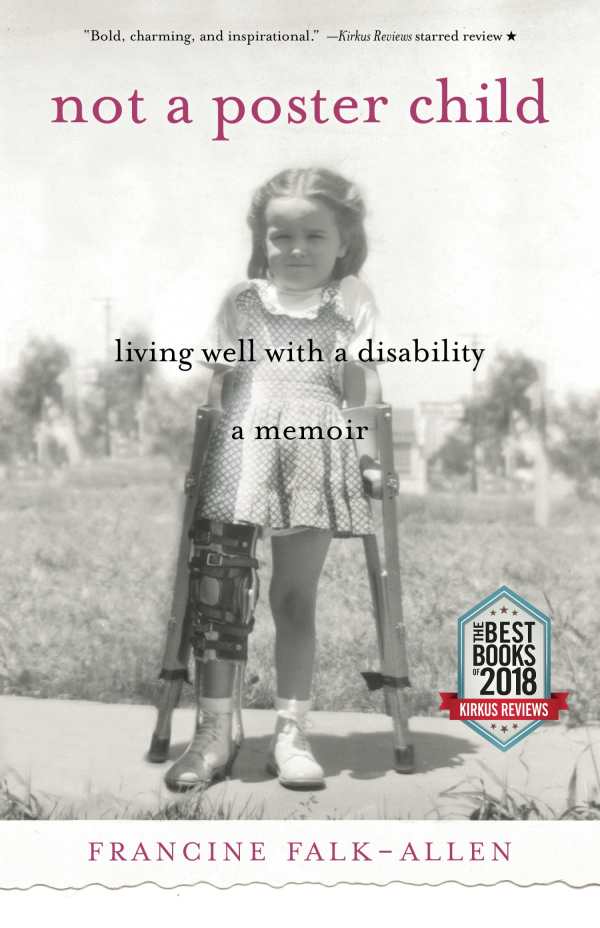Not a Poster Child
Living Well with a Disability
Not a Poster Child is enlivened by its uniquely compassionate approach to living with a disability.
Francine Falk-Allen’s unputdownable memoir, Not a Poster Child, is as inspiring and entertaining as it is heart-wrenching. The author’s approach to living life with a disability reveals that though “love may not conquer all … respect, affection, and humor go a long way.”
After contracting polio at age three and spending six months in a crowded children’s hospital, Falk-Allen became partially paralyzed in her right leg, which also severely stunted its growth. With thorough self-awareness, she describes what it was like growing up, navigating young adulthood, and coming into her own with a handicap.
Hers is a life like any other: making friends, dating, deciding what to do for work, and learning the impact that one’s childhood had on one’s current psychological state. She moves in and out of religion, experiments with psychedelic drugs, deals with a breast cancer diagnosis, and learns to ski—her “little leg” affecting her experiences to varying degrees.
Emotions run high, and they run the gamut from humiliation and depression to elation and fulfillment. Especially in the most poignant scenes—such as when a second-grade teacher tells her she is being melodramatic when she cries at an evocative line in a song–the depth of feeling is what makes this memoir remarkable.
The details that emerge from Falk-Allen’s astounding memory evoke compelling images. Hospital rooms, the faces of loved ones, her particular gait—all of these are easy to picture thanks to Falk-Allen’s evocative words. She writes with a distinct clear-headedness that makes even lofty philosophical views about life feel concrete.
While the book may not be intended to be educational for those without a disability, many of the experiences described are quite enlightening. For instance, Falk-Allen must buy two drastically different sized shoes—a woman’s size and a child’s size, often difficult to find in the same style. And her codependency issues, she realizes, had been compounded by her mother’s propensity for marrying alcoholics. She finds it silly when people call her “brave,” but, she says, “I do appreciate having what I navigate daily be seen.”
It’s refreshing to see a sense of humor that leans absurdist rather than self-deprecating, and Falk-Allen’s cheekiness enlightens as much as it endears. Not a Poster Child is enlivened by its uniquely compassionate approach to living with a disability as it confronts timely issues of vaccination, workplace accessibility, and life-affirming kindness.
Reviewed by
Aimee Jodoin
Disclosure: This article is not an endorsement, but a review. The publisher of this book provided free copies of the book and paid a small fee to have their book reviewed by a professional reviewer. Foreword Reviews and Clarion Reviews make no guarantee that the publisher will receive a positive review. Foreword Magazine, Inc. is disclosing this in accordance with the Federal Trade Commission’s 16 CFR, Part 255.

